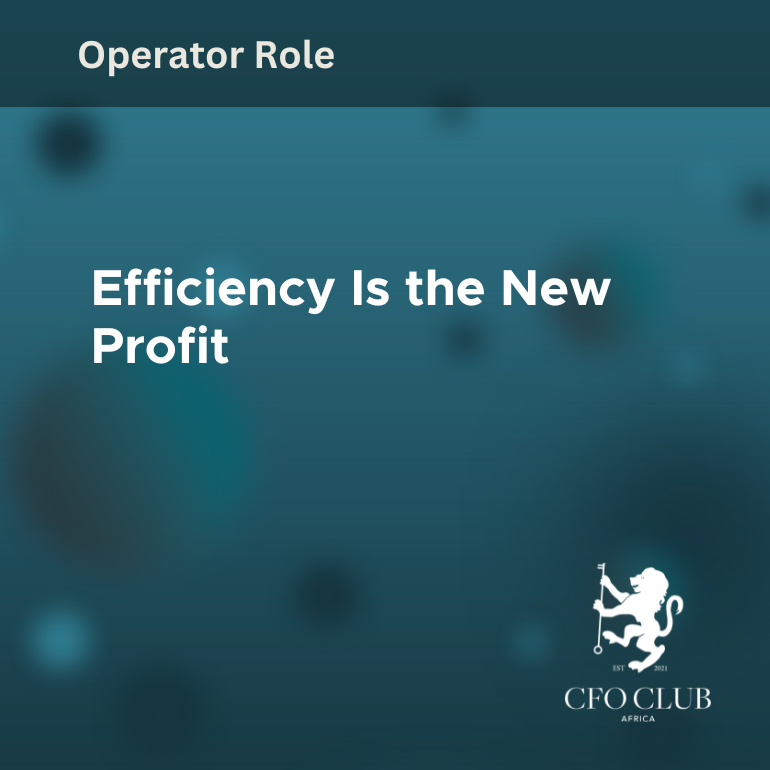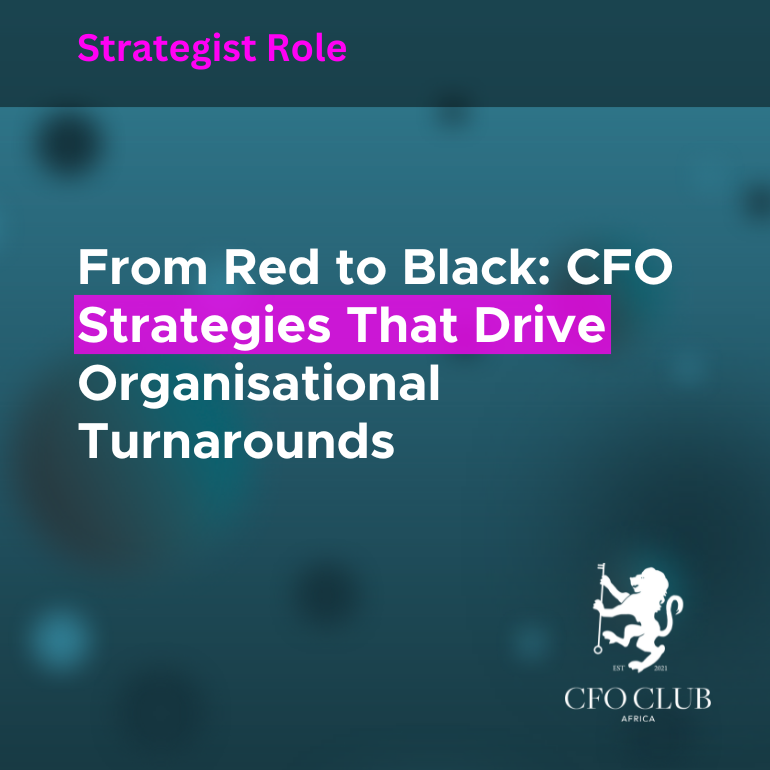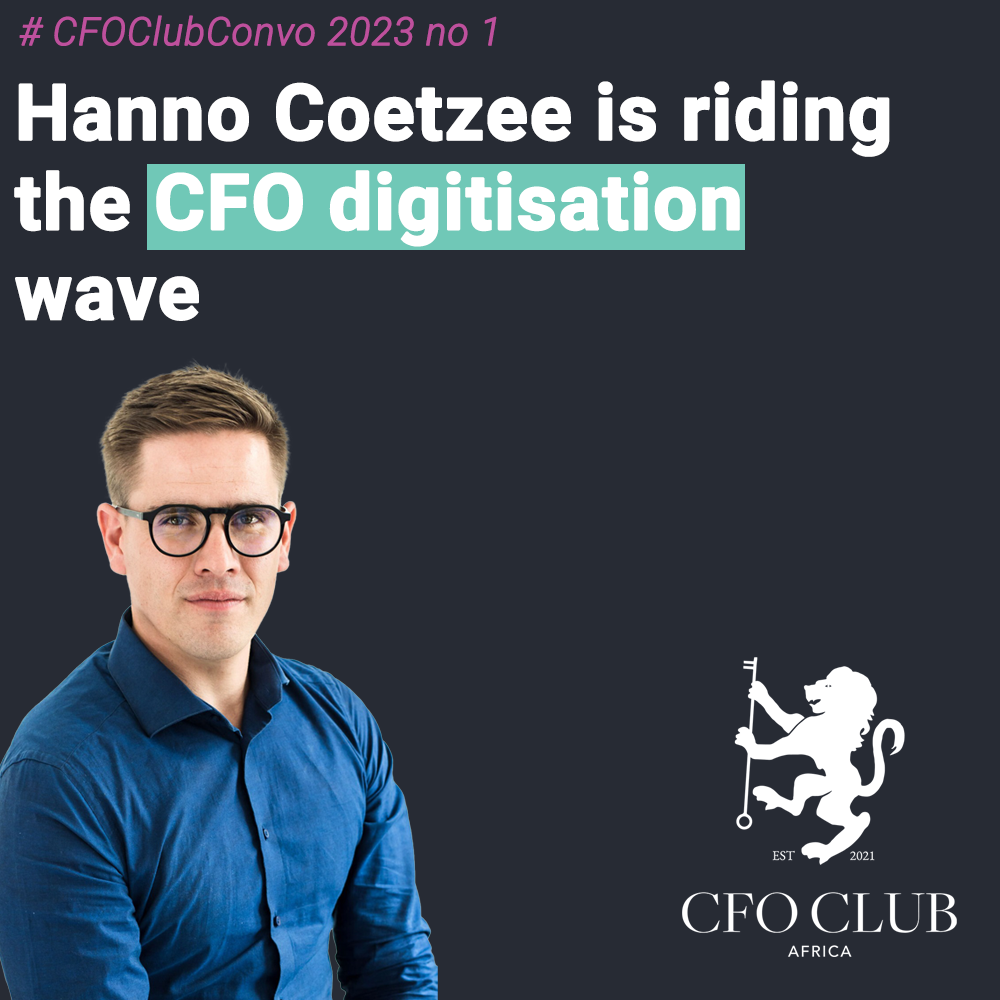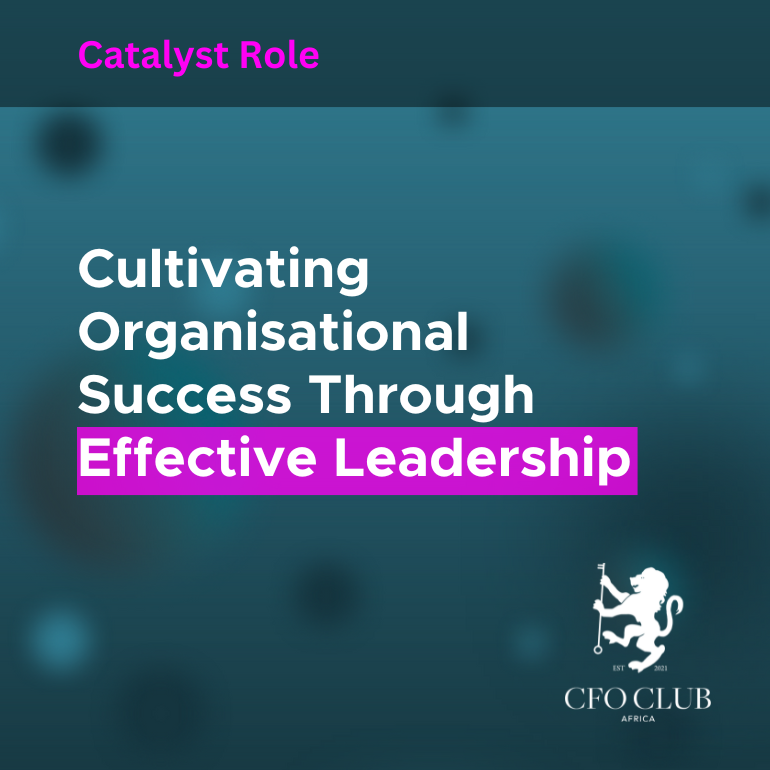Efficiency Is the New Profit
Every CFO in South Africa knows the feeling. Payroll is due, Eskom has issued another tariff increase, and a supplier has quietly added a “fuel surcharge.” It is not chaos; it is business as usual. Yet this familiar tension highlights a new truth: efficiency is no longer a nice-to-have. It is the single most important skill that determines whether a business survives or fails.
The South African CFO sits at the intersection of rising costs, shrinking margins, and growing expectations. Every decision has a price tag, and every inefficiency costs more than before. The finance leader’s most powerful tool is no longer a spreadsheet or a forecast. It is the ability to create systems that make limited resources stretch further. Efficiency is not an accounting exercise. It is leadership in action.
Doing More With Less Is Not Just a Slogan
“Do more with less” is often used as a cliché in boardrooms, but for most South African CFOs, it is an everyday reality. Businesses face higher input costs, unstable infrastructure, and complex compliance demands that drain productivity. In this environment, the CFO must ensure that accuracy, speed, and control are achieved without exhausting the team or compromising on quality.
Efficiency is not only about reducing costs. It is about using every rand purposefully. The most successful CFOs understand that true efficiency is achieved by doing only what matters, doing it well, and doing it once. It requires clarity, discipline, and courage to stop doing what adds no value.
The Month-End Marathon: The First Test of Efficiency
For many finance teams, the monthly close feels like a never-ending race. Spreadsheets pile up, deadlines close in, and everyone scrambles to reconcile figures. Yet the way a business closes its books says everything about how it operates.
If the close is always delayed, the problem is not timing. It is structure. Efficient CFOs treat the month-end process as a mirror reflecting their systems. They ask questions such as: Where are the bottlenecks? Why do the same issues keep recurring? Which parts can be automated or standardised?
Automation tools can handle repetitive tasks such as bank reconciliations, recurring journals, and variance analysis in a fraction of the time. However, technology alone does not create efficiency. Process design and accountability do. Clear ownership of tasks, standardised checklists, and earlier cut-off points can reduce closing times by up to half.
Every day gained after month-end gives leadership one more day of insight. A faster close leads to faster decision-making, and faster decisions are what allow finance to shape strategy instead of merely reporting on it.
Creating a Single Source of Financial Truth
Efficiency depends on information flow. Many South African CFOs still manage data scattered across various systems and spreadsheets. Without a single source of truth, the finance team spends more time reconciling differences than analysing performance.
Modern cloud-based platforms allow real-time dashboards that display daily cash positions, aged debtors, and expenditure trends. The best dashboards are simple and focused. They answer one key question: What do we need to know right now to make better decisions?
Some CFOs are adopting a weekly rhythm of short financial pulse meetings instead of waiting for the end of the month. These meetings last only 30 minutes and focus on three metrics: cash flow, receivables, and stock levels. This rhythm shifts finance from being reactive to being proactive and embeds a culture of accountability across departments.
Cutting Waste Without Cutting Value
Cost reduction is not the same as cost efficiency. The goal is not to spend less, but to spend better. An investment in automation that saves hundreds of hours of manual work is not an expense. It is a multiplier. On the other hand, duplicated software licences, unmonitored subscriptions, or poorly negotiated supplier contracts can drain significant value every year.
CFOs who act as efficiency architects ask three questions about every line item in the budget: Does this cost help us make money? Does it save us time? Does it protect us from risk? If it does not meet at least one of those criteria, it does not belong in the budget.
Simplifying Compliance
South African CFOs face a growing list of compliance obligations. From SARS filings and VAT submissions to payroll regulations and POPIA requirements, compliance consumes time and attention. Efficiency is not about ignoring compliance. It is about simplifying it.
Forward-looking finance teams are automating tax submissions, integrating payroll with accounting systems, and linking document storage directly to supplier invoices. These changes reduce manual errors and make audits easier.
CIBA’s policy framework supports this approach. Compliance should make organisations more transparent and efficient, not more burdened.
Every procedure should have a clear purpose that strengthens accountability while freeing professionals to focus on value creation.
People: The Real Source of Efficiency
No system can replace good people. Efficiency is ultimately a human trait. It thrives where teams communicate clearly, plan ahead, and take ownership of their work.
CFOs who lead efficient teams cultivate a culture of responsibility. They encourage staff to challenge unnecessary processes, to automate repetitive tasks, and to measure their success by results rather than effort. They celebrate improvements that save time or reduce errors. This kind of recognition reinforces the idea that every efficiency gain strengthens the entire business.
Technology That Pays for Itself
Automation is no longer the privilege of large corporations. Cloud accounting platforms such as Xero, Sage, and QuickBooks now include built-in automation, AI-supported reconciliations, and integrated expense tracking. Machine learning tools can flag duplicate invoices before payment. Predictive analytics can forecast cash shortages weeks before they occur.
The role of the CFO is to ensure that every technological investment produces a measurable return. A tool that does not save time, reduce risk, or increase visibility within its first year is not an investment. It is a distraction.
A uniquely South African Approach to Efficiency
Efficiency must be shaped by context. South African CFOs work in a complex environment that includes load-shedding, volatile exchange rates, and clients who sometimes pay late. These realities have forced finance leaders to become innovative problem-solvers.
Many local businesses are building resilience through flexible work models, off-grid continuity planning, and shared-service functions that reduce overheads. Efficiency in South Africa is not about following global trends. It is about solving local problems with practical creativity.
The CFO as the Engine of Execution
A business can have the best strategy in the world, but it means nothing without execution. The CFO’s systems and discipline provide that execution muscle. Efficiency turns ambition into results.
When a company survives a liquidity crunch, meets deadlines despite limited staff, or discovers new profits through better processes, it is not luck. It is leadership. The CFO designed that outcome months before anyone noticed. Efficiency is often invisible, but its results are unmistakable.
Final Thoughts
The South African CFO has a clear mission: build systems that save time, empower people, and stretch every rand further.
Doing more with less is not a sign of struggle. It is a sign of maturity. It shows that a business has learned to thrive on discipline, not abundance. Efficiency is not a project that ends. It is a mindset that defines how modern finance leads.
When every rand counts, efficiency is not just a financial principle. It is a leadership style. And it may be the most important one a South African business can have.





